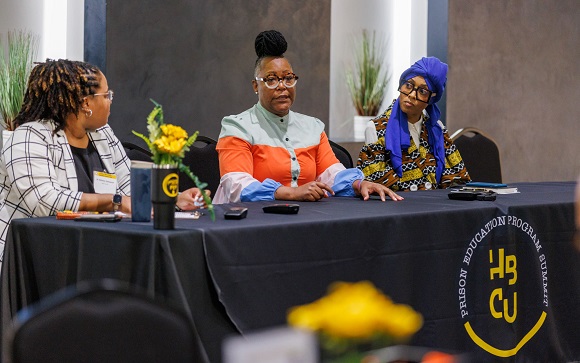Leaders from HBCUs, criminal justice advocates and community organizers gathered at Bowie State University over the weekend for the inaugural HBCU Prison Education Summit to discuss strategies to expand offering university courses and degree programs to incarcerated citizens.
Data released last month from the Prison Policy Initiative shows that 37% of people in prison or jail are Black and that 30% of people on probation or parole are also Black, while only 13% of the U.S. population is comprised of Black people.
“One of the goals of the Summit was to begin the process of establishing a Prison-to-HBCU Pipeline to ensure institutions collaborate rather than compete for funding to educate individuals behind the wire,” said Dr. Charles Adams, chair of Bowie State’s criminal justice department and executive director of the Prison Education Program.
Tristan Slough attended the Summit representing the Tennessee Higher Education in Prison Initiative which brings degree-bearing college programs to individuals incarcerated. He said learning how others deal with challenges and more about Bowie State’s prison education strategy is why he attended the meeting.
Bowie State has been instrumental in advancing prison education initiatives since 2022 when the school launched its Second Chance Pell Grant program with a cohort of six students amidst strong campus and community support. Now, in its third year, the program offers a Bachelor of Science degree in sociology and an entrepreneurship certificate with 29 students currently enrolled at the Jessup Correctional Facility in Jessup, Maryland and 25 new students prepared to begin classes in the fall.
“HBCU’s cannot do this alone. By coming together, we strengthen our impact and increase our ability to secure resources to meet incarcerated citizens where they are and better prepare them for potential jobs when they are released back into the community,” said Adams.

